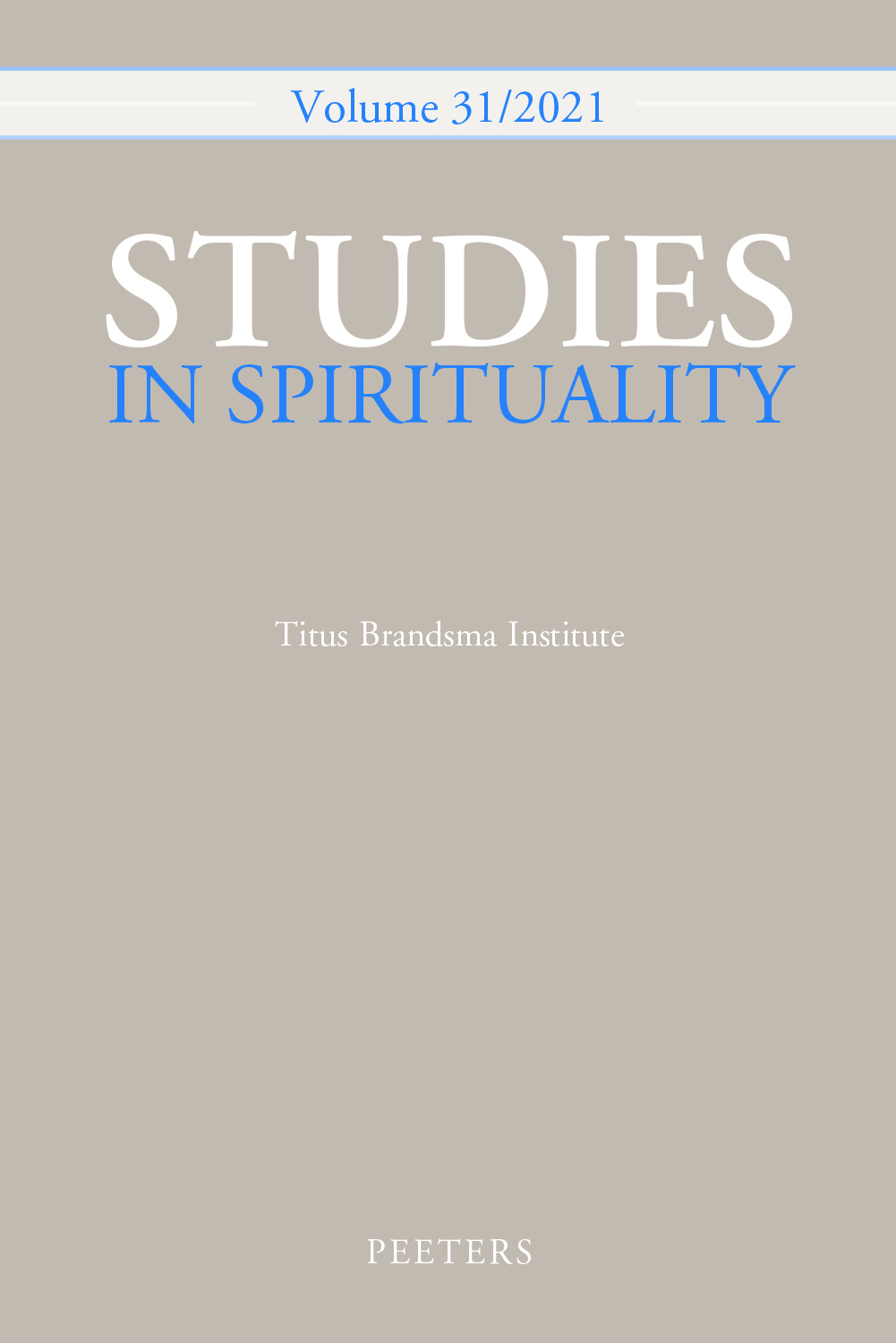 previous article in this issue previous article in this issue | next article in this issue  |

Preview first page |
Document Details : Title: The Power of Spirituality in the Middle Ages and the Early Modern Age Subtitle: From the Medieval Mystic Hildegard of Bingen to Jacob Böhme and Johann Scheffler (Angelus Silesius): Messages from the Past for our Future? Author(s): CLASSEN, Albrecht Journal: Studies in Spirituality Volume: 30 Date: 2020 Pages: 115-144 DOI: 10.2143/SIS.30.0.3288716 Abstract : Throughout time, individuals have been graced with spiritual visions, and they themselves have subsequently exerted tremendous influence on their society as authority figures because of their unique religious experiences. Medieval mysticism was one of those moments, and despite the growing discomfort by the Church, mystics appeared also in the late Middle Ages and early modern time. Indeed, when we consider the voices of Jacob Böhme, Sebastian Frank, Valentin Weigel, and Johann Scheffler, among many others, this movement grew considerably in new ways, and this despite various political efforts by the authorities to repress it. In fact, modern theology and philosophy cannot be understood without direct references to those medieval and early-modern spiritualists, whether we think of Arthur Schopenhauer, Martin Heidegger, Carl Gustav Jung, Ludwig Wittgenstein, Hans Urs von Balthasar, and Karl Barth. This article will examine the significance especially of Hildegard, Böhme, and Scheffler for the history of spirituality until today, each representing a major milestone in the high Middle Ages, in the age of Reformation, and in the Baroque period. |
|


